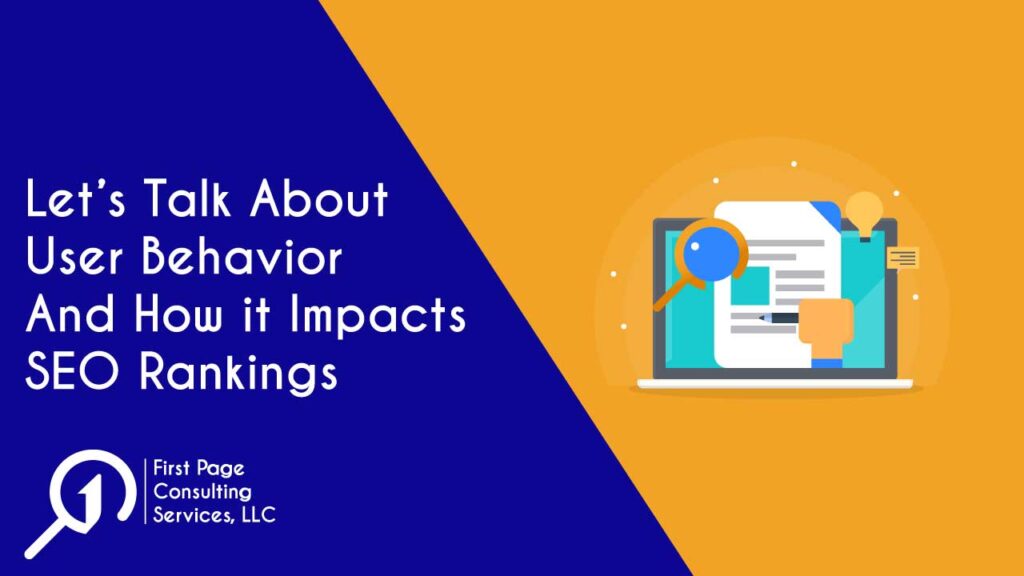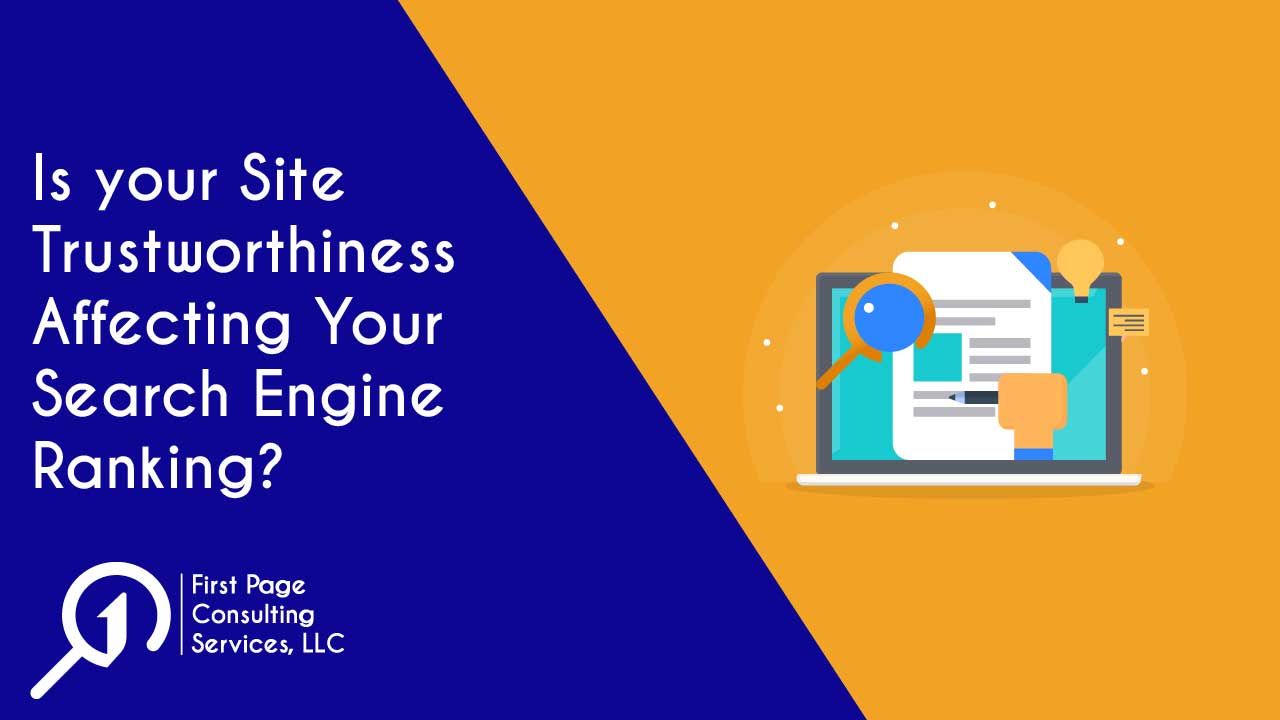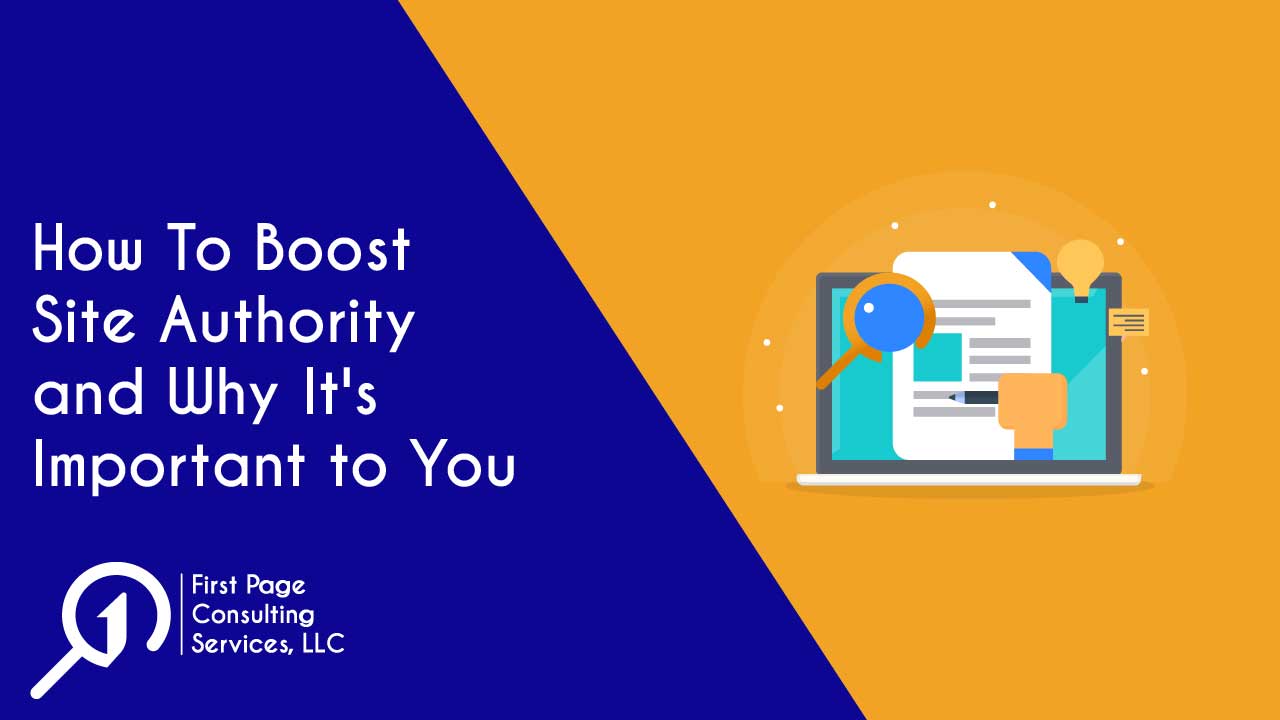
Don't miss another Post. Sign up for our newsletter.
Let's Talk About User Behavior And How It Impacts SEO Rankings
This is the 6th in a series of articles on getting your website found and your SEO Strategy. Make sure you check out the other articles in the series:
- We Need to Talk About an SEO Strategy. It’s A Necessary Evil
- Keywords: A Glimpse into Determining What Your Audience Wants and Needs
- Boost Site Authority So Google And Your Visitors Take You Seriously
- Is Your Site Trustworthiness Affecting Your Search Engine Ranking?
- Can the Small Guy Win? Relevancy Matters!
- Let’s Talk About User Behavior and How It Impacts Search Rankings
- Putting it all Together: Developing a Strong SEO Strategy
The best SEO campaign and high rankings won’t help you if you don’t take user behavior and preferences into consideration. It starts with being as simple as the keywords and phrases you choose to rank for. If you pick something that your ideal customers and clients aren’t looking for; or the phrase, your content, and your offer don’t match, that keyword ranking is doing you no good.
But it goes much deeper than that. What the search engines – Google in particular – want to see is that when someone clicks on a high ranking search result matters. They want someone to click on that link, visit your site and spend some time there consuming content. What they don’t like to see are minimal clicks (in comparison to other search results on that same page), or having visitors click through to your site, hit the back button, and then go to a different site.

But how does that affect me as a content creator?
Create content geared towards your target audience first – always. If you have a list of keywords that you want to create content around, ask yourself if that search term matches your audience and the content you share. If it does, go ahead, if not, find a better keyword choice.
Then get to writing your content for your readers – first. Once it’s written and fine-tuned, go back and look at the title. Is the keyword used in the title? If not, can you rewrite it and still have a compelling title. Keep in mind, this is going to be the headline that shows on social media and in search results. The also applies to metadata like the description and the URL. If you don’t understand what I’m talking about, perform a google search and look at what the search results look like. My colleague, Jackie, over at Barefoot Digital Marketing has a great (FREE) download on crafting failproof headlines. When you’re done here you should go grab your copy before she takes it down.
Last but not least, review your content to ensure that you’ve used the keyword once or twice in the content and including related words and phrases. Search engines are smart and latent semantic keywords help them determine what your content is about.
With content that is well-written and targeted you will ensure that your audience clicks and sticks (stays on your site), which will help you increase your search engine rankings. Not sure that your content is hitting the mark? Ask your readers. If it isn’t what they were looking for, they will tell you.
“Let’s Talk About User Behavior And How It Impacts SEO Rankings” is the sixth article in a series on getting your website found and SEO Strategy. Make sure you check out the other articles in the series:
- We Need to Talk About an SEO Strategy. It’s A Necessary Evil
- Keywords: A Glimpse into Determining What Your Audience Wants and Needs
- Boost Site Authority So Google And Your Visitors Take You Seriously
- Is Your Site Trustworthiness Affecting Your Search Engine Ranking?
- Can the Small Guy Win? Relevancy Matters!
- Let’s Talk About User Behavior And What It Has To Do With SEO Rankings
- Putting it all Together (December 8)
Is all of this overwhelming you? Request your free SEO Analysis and we’ll get you started down the right path.






Pingback: We Need to Talk About An SEO Strategy. It's a Necessary Evil. - First Page Consulting Services
Pingback: Developing a Strong SEO Strategy for Your Business
Pingback: Is your Site Trustworthiness Affecting Your Search Ranking?
Pingback: Can The Small Guy Win? - Relevancy Matters? - First Page Consulting Services
Pingback: How To Boost Site Authority and Why It's Important to You
Pingback: A Glimpse Into Determining What Your Target Audience Wants
Great Article!